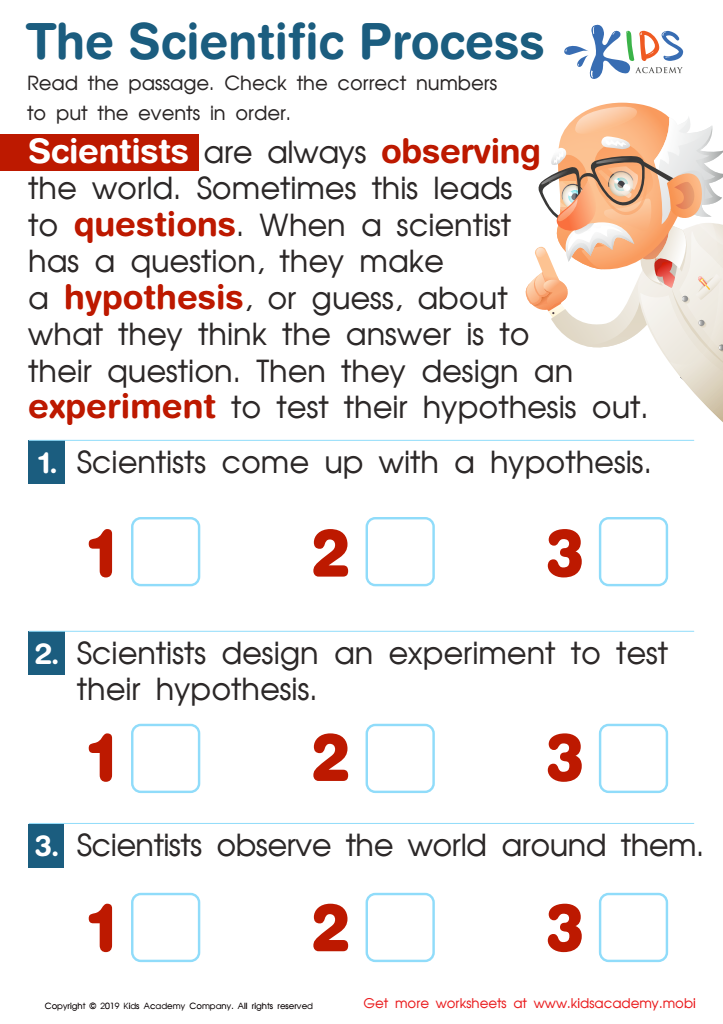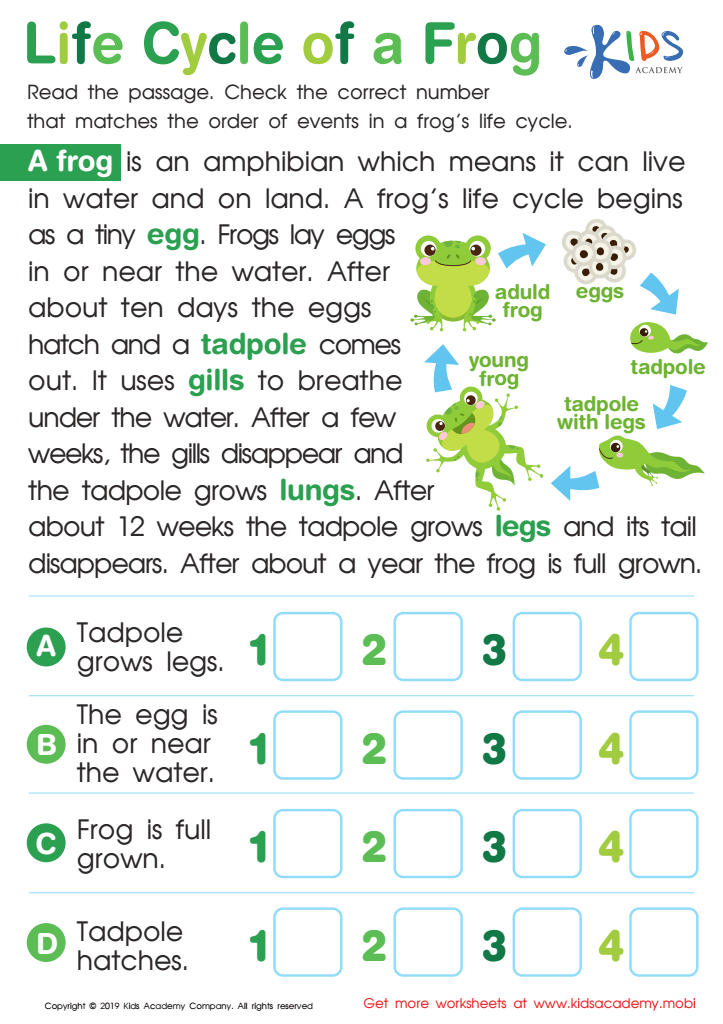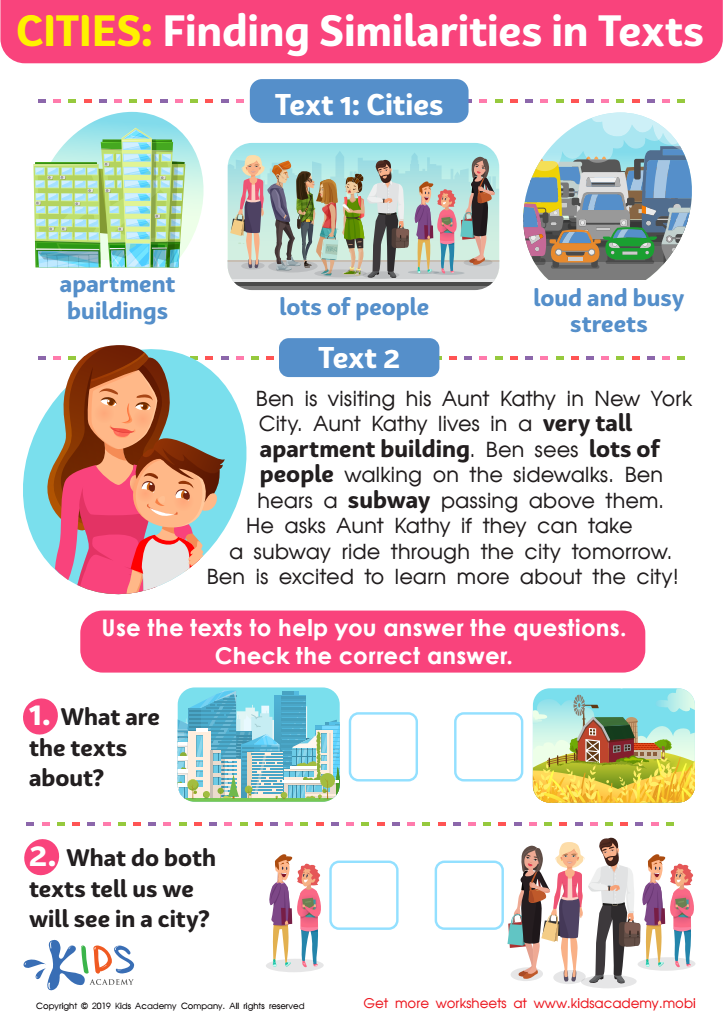Enhancing observation skills Easy Reading Non-Fiction Worksheets for Ages 5-8
3 filtered results
-
From - To
Enhance your child's observation skills with our Easy Reading Non-Fiction Worksheets, tailored specifically for ages 5-8. These engaging and educational worksheets combine fun activities with informative content, encouraging young learners to explore the world around them. By focusing on observation techniques, children will develop critical thinking and analytical skills as they learn to notice details in text and images. Ideal for classroom use or at-home learning, these worksheets foster independent reading while promoting curiosity and understanding of non-fiction topics. Give your child the tools to discover and observe, setting a strong foundation for lifelong learning and academic success!


The Scientific Process Worksheet


Life Cycle of a Frog Worksheet


Cities: Finding Similarities Worksheet
Enhancing observation skills through easy reading non-fiction is vital for children ages 5-8, as it plays a crucial role in their overall development. First, these skills improve a child's ability to closely examine their surroundings, fostering curiosity and critical thinking. As children engage with non-fiction texts, they learn to notice details, ask questions, and draw connections, which builds a strong foundation for future learning.
Moreover, enhancing observation skills encourages a love for reading and discovery. Non-fiction books introduce children to fascinating facts about nature, science, history, and cultures, sparking their interest and expanding their knowledge base. In turn, this helps develop vocabulary and comprehension skills, essential for all subjects.
Additionally, these skills promote social and emotional growth. By observing details in their environment, children become more aware of their feelings and those of others, improving their empathy and communication skills. For parents and teachers, investing time in fostering observation abilities through engaging, easy-to-read texts not only makes learning enjoyable but equips children with essential life skills. Ultimately, these foundational skills will support academic success and lifelong learning, making it crucial for caregivers to prioritize them in early education.
 Assign to My Students
Assign to My Students














